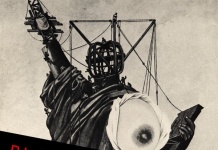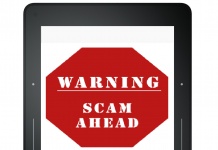 This post started its life as a comment to Nate’s post on how authors are unhappy with Kindle Unlimited. It quickly grew to a post in its own right.
This post started its life as a comment to Nate’s post on how authors are unhappy with Kindle Unlimited. It quickly grew to a post in its own right.
I agree that Kindle Unlimited has not been a good thing for authors. I’ve seen the impact on my own sales. Before KU was launched, I was on track to triple my income from last year. Looks like instead I’m going to do a bit better than doubling. Yes, that’s disappointing. However, I decided when I started that I was looking at this long term, and I’m still having a way better year than last year, so it’s time to tweak the tactics.
I think the authors who think like business owners are still going to succeed. The ones who thought they were going to ride the self-publishing wave are going to be disappointed, and they will have to adjust their strategies.
This has been a good time for me to read [easyazon-link asin=”B00H26IFJS” locale=”us”]Write. Publish. Repeat.[/easyazon-link] I just got to the part about finding your 1,000 raving fans. I’d run across this concept in a Kris Rusch blog post a while back and filed it away to remember later. Reading about it again made me think.
In Write. Publish. Repeat. the authors talk about finding your tribe. Your tribe is made up of your ideal readers who will buy everything and support you for your entire career. How do subscription services like Kindle Unlimited (or Scribd/Oyster) fit with the tribe concept? Let’s look at streaming video, which has been around long enough to learn some lessons from.
I would consider myself a “raving fan” of four shows. I’m in that category because I’m willing to pay for a season pass from Amazon, and with one exception, I’ve purchased multiple seasons. (Hannibal is the exception, and there’s only been one season to purchase since I discovered the show.)
How did I discover these shows? Through either Netflix or Amazon Prime streaming. In all four cases (soon to be five–loving Agents of S.H.I.E.L.D., which Netflix just got). I could wait for the next season to be available by subscription, but I’d rather pay to watch them sooner.
So what’s the lesson for authors? The first part is that true fans are willing to pay. I’m a raving fan of several authors, and I buy their stuff as soon as its published, even though I could easily feed my reading habit through Scribd and the library. So readers will pay if they are invested in your writing.
I believe that subscription services and buying behavior will co-exist, at least for a while. Authors, cultivate your 1,000 raving fans. They will be the foundation of your income. Books like Write. Publish. Repeat. are a road map to finding and keeping them. Consider subscription services as a discovery tool, not an income tool. If someone borrows your book, and you get paid, fine. If they have the characteristics of your ideal reader, then cultivate them as one of your raving fans. Think of the subscription service as marketing where someone pays you.
I’m still convinced, however, that exclusivity is a bad idea. Your ideal readers may own Nooks or love the iBookstore. Forcing them to buy from Amazon may be enough to drive them to another author. I think Scribd and Oyster are still the better deals, but some authors may define their ideal readers as “those who buy almost exclusively from Amazon.” While possible, I still think it’s too big a risk. Other authors (like Gaughran and Konrath) disagree with me, though, and I do listen carefully to what they say. Which is why I’m planning at least a limited KDP Select run for my next two books.
While disappointed at the effects of Kindle Unlimited on my own sales, I’m still confident it’s a great time to be an independent author. It might take a bit more work now than it did a few years ago, but the potential is still there for those willing to work the system.
































